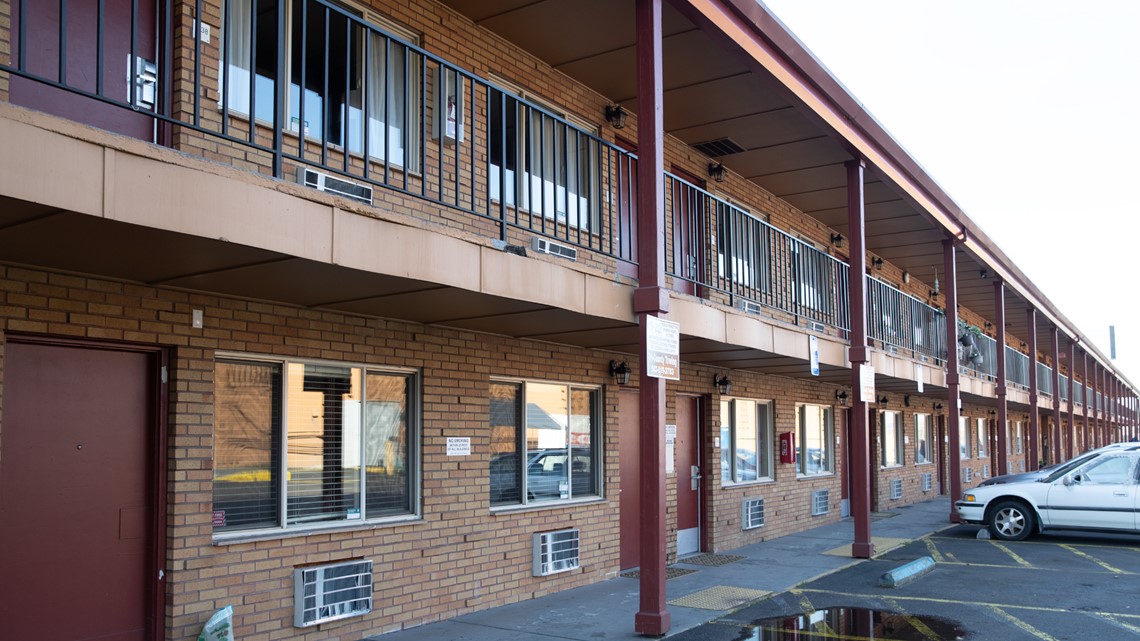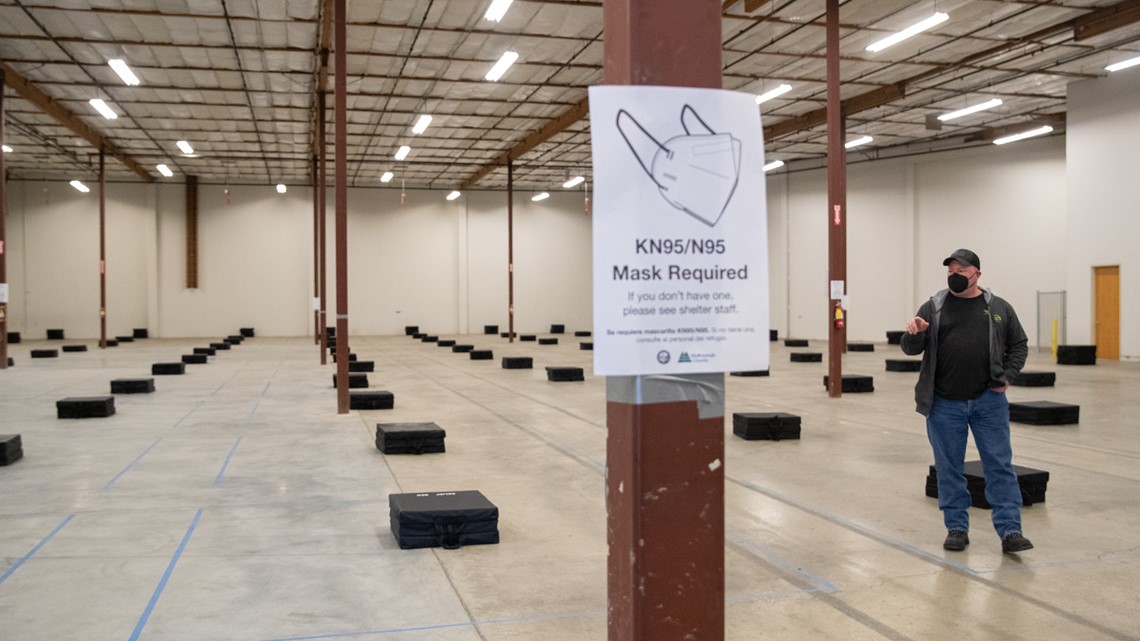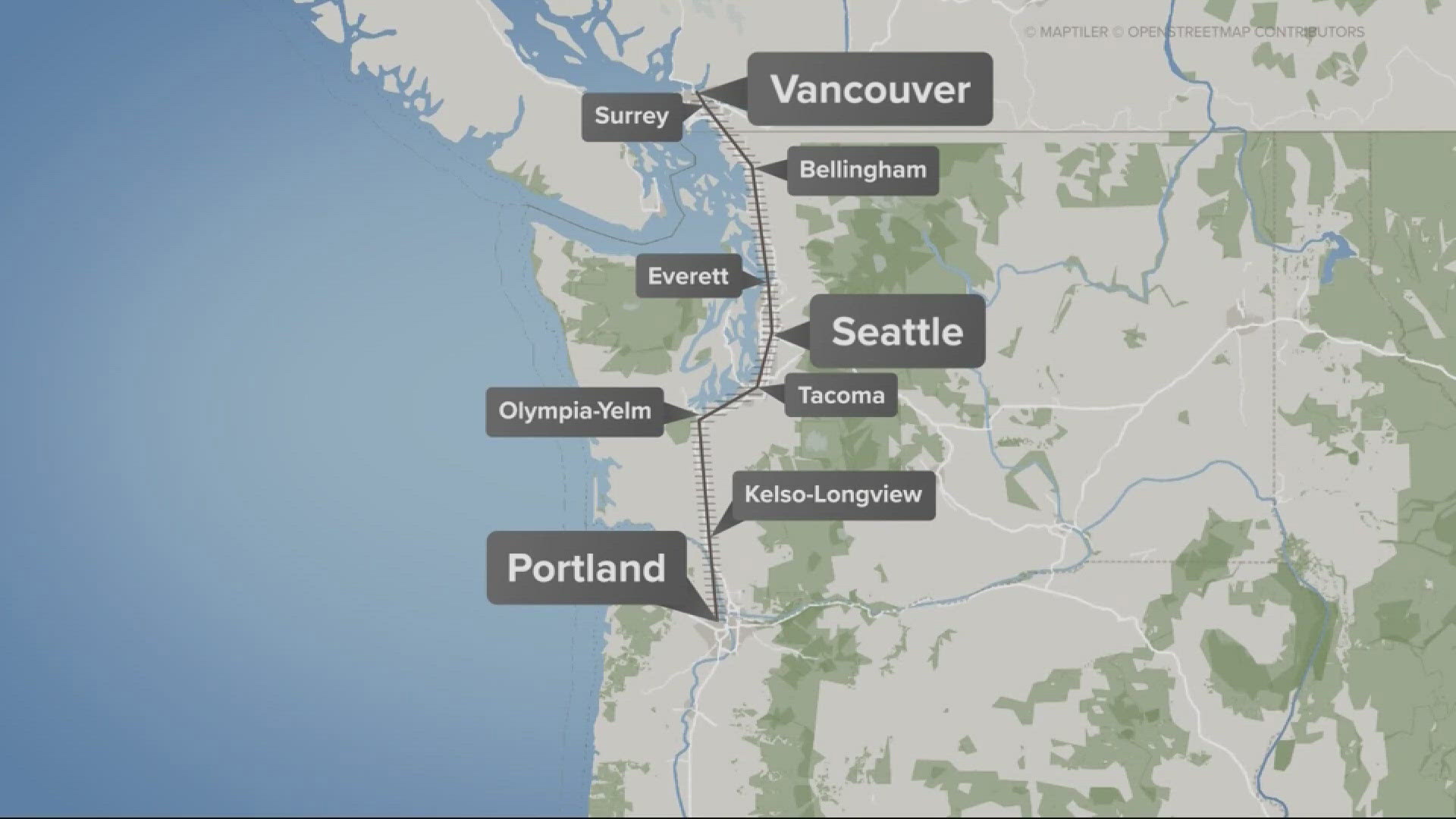PORTLAND, Ore. — With COVID-19 case counts and hospitalizations declining, shelters in Multnomah County are starting to increase capacity and add more beds for those experiencing homelessness.
According to Multnomah County, there is more shelter capacity in the county now than before the pandemic. Fifteen new shelters have opened since the pandemic began, including motels, villages and hybrid-style shelters, the county said in a news release.
Currently, the Joint Office of Homeless Services (JOHS) supports more than 1,600 shelter beds, sleeping pods and motel rooms in the county, an increase from 1,350 shelter beds that were in place before the pandemic.
"Because rooms and sleeping pods can serve more than one person, the number of people served is even higher," said Denis Theriault, deputy communications director for Multnomah County.


Shelters across the county planned to transition back to full capacity last fall, but that plan was delayed by the arrival of the omicron variant. With a recent and ongoing reduction in cases and hospitalizations, that effort will now resume. The JOHS is working with shelter providers in the county to gradually lift all capacity limits, Theriault said, a transition that would eventually add another 450 shelter beds.
Transition Projects, which operates the largest number of adult congregate shelters in the county, has a goal to increase shelter capacity from the current 50% to 75% by the end of March. Other providers, like Human Solutions and Do Good Multnomah, are also starting to add more beds.
This spring, the county plans to open a new shelter for adult women on Southeast Market Street in Portland, Theriault said. The new shelter, funded by the city and county's business income tax surplus, will provide 125 more beds, according to the news release. The shelter was used this past winter during two severe weather events.


Despite the reduction in cases and hospitalizations, COVID-19 transmission remains a risk. In January, as omicron cases peaked, there were 13 outbreaks at shelters across Multnomah County, Theriault said, an increase from a monthly average of four outbreaks at shelters since the start of the pandemic.
Even though Oregon lifted its statewide mask mandate on March 12, Theriault said Multnomah County will continue to require face masks in the shelter it operates and recommends that other shelters require face masks.
Since the start of the pandemic, shelter providers have implemented multiple measures to help protect those staying in shelters. The JOHS opened nine motel shelter programs for those at high risk of COVID-19 transmission, including a 137-room shelter in Northeast Portland that opened in February. That shelter was also funded through the city and county’s business income tax surplus.
The county has provided voluntary isolation programs to help unhoused people who tested positive or were at high risk of COVID-19 exposure. Those people were able to isolate or quarantine and receive services until they recovered. And the county has prioritized vaccination for those experiencing homelessness, hosting at least 40 vaccination clinics for both sheltered and unsheltered people.
RELATED: Mayor Ted Wheeler issues emergency declaration to centralize Portland's homelessness services
VIDEO PLAYLIST: Portland's housing crisis



